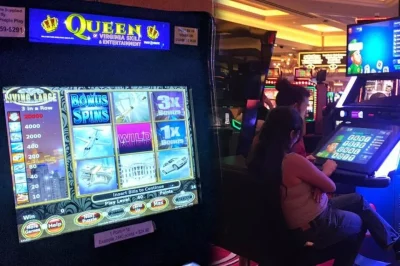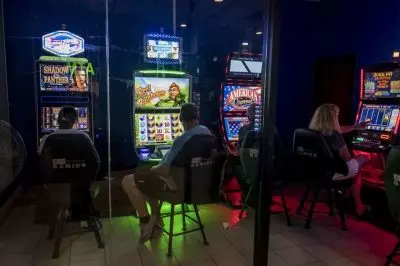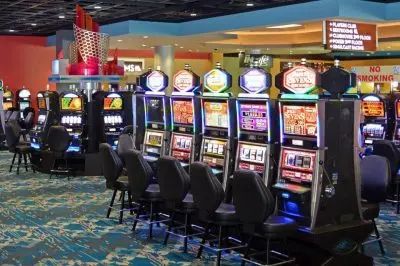 The gaming industry in Pennsylvania is in debates over skill games as more than 50,000 slot-machine-like games in the Commonwealth have been in legal limbo and remain unregulated. While there have been several attempts to remove these types of games from the Keystone State, advocates for skill games are calling for regulation and taxation of such machines.
The gaming industry in Pennsylvania is in debates over skill games as more than 50,000 slot-machine-like games in the Commonwealth have been in legal limbo and remain unregulated. While there have been several attempts to remove these types of games from the Keystone State, advocates for skill games are calling for regulation and taxation of such machines.
The state police have deemed skill games illegal gambling devices and even tried to seize them from establishments offering these slot-like machines. However, the courts did not approve of those seizures, with skill games remaining in a legal gray area.
Michael Barley, Chief Public Affairs Officer for Pace-O-Matic, argues that skill games offered across the Commonwealth do not fall under the usual definition of gambling devices. According to him, in the state of Pennsylvania, as well as other states, a gambling machine consists of three key elements. These are consideration, chance, and reward. The first element represents the decision players make when placing their bets, the second part of the gambling experience is pressing the button, leaving the outcome of the game entirely to the game, and then comes the reward if the player gets lucky.
According to Barley, in skill games, the chance element is replaced predominantly by skill. He added that these machines allow seasoned players to win every single time, which has been proven in court by experts.
Supporters Call for Skill Game Taxes, State Senator Sponsors Skill Game Legislation
 Barley’s agenda to regulate skill games in the Keystone State is understandable as his company, Pace-O-Matic, is in charge of the operation of Pennsylvania Skill Games. In addition to the regulation request, Barley also called for additional taxes imposed on the state’s slot-like machines.
Barley’s agenda to regulate skill games in the Keystone State is understandable as his company, Pace-O-Matic, is in charge of the operation of Pennsylvania Skill Games. In addition to the regulation request, Barley also called for additional taxes imposed on the state’s slot-like machines.
It has been no secret that State Senator Gene Yaw has shown full support for the skill games regulation for years. According to him, skill games could bring the Commonwealth a tax revenue of between $200 and $300 million a year. Yaw is a co-sponsor of the Skill Video Gaming Act, which was introduced with the purpose of establishing some uniformity in the way skill games are regulated in the state of Pennsylvania.
If the legislation is passed, the regulation of skill games will fall under the remit of the Department of Revenue instead of the PA Gaming Control Board. Another suggestion introduced by the co-sponsored legislation is a 16% tax rate on skill games. Currently, Commonwealth casinos pay a slot tax of $0.54 for every dollar but skill games are not taxed.
The regulation of skill games had also received the support of local business owners, with the Pennsylvania Taverns and Players Association (PA TAP) saying the income from skill games could be of great benefit to the state’s businesses. Advocates of the concept also reported that the income generated through skill games has helped many non-profit establishments as well as fire halls, and veteran organizations.
State Agencies Disapprove of Skill Machine Regulation, Critics Accuse Skill Games of Taking Money from State Lottery
 While the regulation of skill games has many supporters, some critics accuse skill games of taking money from the state lottery, which supports seniors. Pete Shelly, Parx Casino consultant based in Harrisburg, who has also established Pennsylvanians Against Gaming Expansion (PAGE), shared his concerns over the legality of skill games. Shelly also shared that the Pennsylvania State Police, the Office of the Attorney General, and the Pennsylvania Gaming Control Board also agree with his stance on the issue.
While the regulation of skill games has many supporters, some critics accuse skill games of taking money from the state lottery, which supports seniors. Pete Shelly, Parx Casino consultant based in Harrisburg, who has also established Pennsylvanians Against Gaming Expansion (PAGE), shared his concerns over the legality of skill games. Shelly also shared that the Pennsylvania State Police, the Office of the Attorney General, and the Pennsylvania Gaming Control Board also agree with his stance on the issue.
According to Shelly, several state agencies agree on the definition of skill games as gambling devices, ultimately deeming them illegal in the Keystone State. Shelly also added that establishments offering these slot-like machines have often faced issues with crimes associated with skill machines. While Pennsylvania casinos are using their own security staff, establishments like convenience stores, gas stations, and thrift stores are just not capable of handling such issues.
While there is constant litigation over the legality of skill games in Pennsylvania, Barley says that Pace-O-Matic is yet to lose its case as the legal status of skill games in Pennsylvania has been upheld in every court case so far.